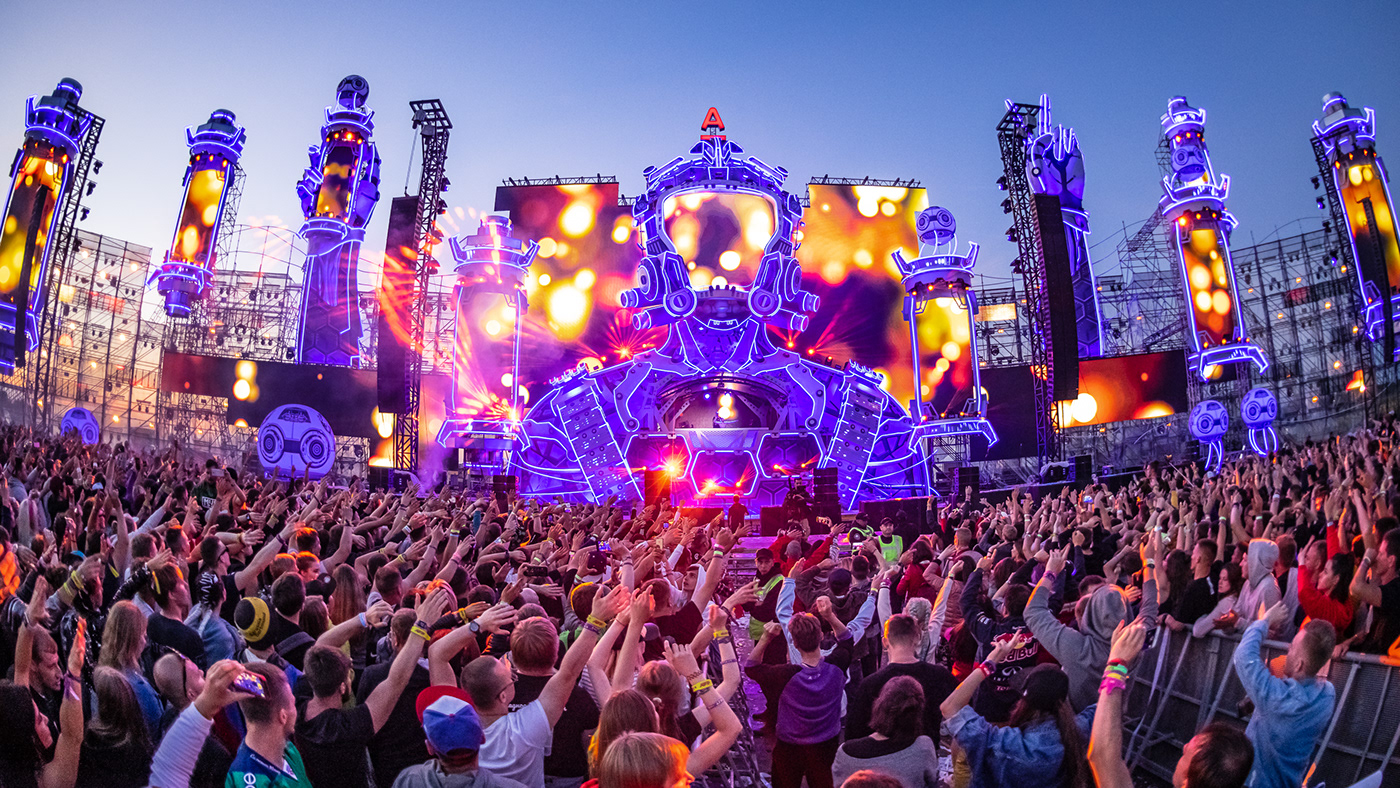Introduction
Music festivals have always been a thrilling escape for music lovers, offering an unforgettable experience of live performances, social connections, and celebration. As we step into the future, the landscape of music festivals is rapidly evolving, shaped by changing technologies, audience expectations, and global shifts. In this article, we’ll explore the latest trends and innovations that are shaping the future of music festivals and discuss what we can expect from these events in the coming years.
The Evolution of Music Festivals
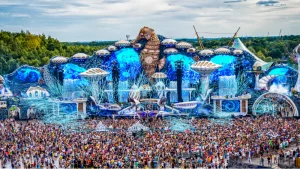
Music festivals have come a long way from the early days of small gatherings of music enthusiasts. Today, they are massive events that attract thousands, if not millions, of attendees. As technology, music tastes, and cultural influences have changed, so have the festivals themselves. The evolution of music festivals includes shifts in the type of music featured, the size of the events, and even the ways festivals are experienced.
- Early Beginnings: Music festivals initially emerged as smaller, niche events often tied to specific music genres like rock, folk, and jazz.
- Growth & Expansion: As the popularity of festivals soared, more mainstream genres like EDM (electronic dance music) and pop began to dominate, attracting larger audiences.
- Global Reach: Major music festivals such as Tomorrowland, Coachella, and Glastonbury have achieved international recognition, pulling in people from all over the world.
The future of music festivals seems poised to continue evolving in exciting and dynamic ways, thanks to new technologies, shifts in consumer behavior, and changes in the entertainment industry.
Major Trends in Music Festivals
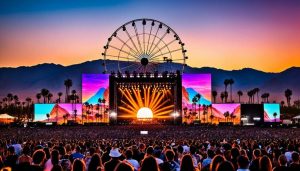
As we look to the future of music festivals, several key trends are emerging that will likely define these events in the coming years.
1. Integration of Technology and Music Festivals
One of the most significant changes in the music festival landscape is the increasing role of technology. The integration of cutting-edge technology is transforming the way festivals are organized, experienced, and enjoyed.
- Virtual Festivals: Due to the rise of online streaming platforms and virtual reality (VR), music festivals are extending their reach to audiences who can’t attend in person. Virtual festivals allow fans to enjoy live performances from the comfort of their homes.
- Augmented Reality (AR) Experiences: AR is adding another layer of interaction and entertainment at music festivals. With the help of apps and wearable devices, attendees can experience enhanced visuals and interactive elements during performances.
- Cashless Payments: Many festivals are adopting cashless payment systems for food, merchandise, and ticket purchases, making the entire experience smoother and more convenient for festival-goers.
2. Sustainability and Eco-friendly Practices
Sustainability is becoming a central concern for many music festivals, especially in light of growing environmental awareness. The future of music festivals will be increasingly focused on eco-friendly practices.
- Waste Reduction: Festivals are implementing zero-waste policies, encouraging attendees to reduce, reuse, and recycle.
- Green Energy: Many festivals are now powered by renewable energy sources, such as solar and wind power, reducing their carbon footprints.
- Sustainable Merchandise: Vendors are increasingly offering eco-friendly products, from biodegradable cups to sustainable fashion items.
Festivals like Glastonbury and Coachella have taken the lead in incorporating sustainability into their event planning, setting a precedent for others to follow.
3. Hybrid Events and the Power of Live Streaming
Hybrid events are fast becoming a prominent feature in the music festival world. These events combine in-person experiences with online streaming, allowing a wider audience to participate.
- Live Streaming: Platforms like YouTube, Twitch, and TikTok are enabling festivals to broadcast performances to global audiences, allowing fans from all corners of the world to experience the event in real time.
- Interactive Virtual Experiences: Some festivals are creating virtual spaces where attendees can interact with the event and other fans digitally, offering a sense of connection even if they’re not physically there.
By merging in-person and virtual experiences, hybrid events are opening up new possibilities for music festivals, offering something for everyone, no matter their location.
4. Diverse Music Genres and Inclusivity
Music festivals have become platforms for inclusivity and diversity, with organizers increasingly focusing on representing a wide range of musical genres, artists, and cultures.
- Global Diversity: Festivals like Coachella and Primavera Sound have been praised for their international line-ups, featuring artists from different countries and cultural backgrounds.
- Inclusivity in Programming: There’s also a growing trend to feature underrepresented genres such as hip-hop, world music, and electronic music, allowing a more inclusive range of experiences for festival-goers.
Inclusivity is expected to remain at the forefront of festival planning, with more emphasis on diversity in artist selection and audience engagement.
5. Wellness and Mindfulness
As music festivals grow larger and more intense, many organizers are incorporating wellness and mindfulness activities to balance the experience.
- Wellness Zones: These spaces offer yoga classes, meditation sessions, and workshops on mental health, providing festival-goers a chance to relax and recharge.
- Mindful Music: Some festivals are incorporating acoustic or ambient music to create a more reflective and peaceful environment alongside the energetic performances.
The integration of wellness experiences into music festivals reflects a growing trend toward mental and physical well-being, with many attendees seeking balance and self-care during their festival experience.
Innovations Shaping the Future of Music Festivals
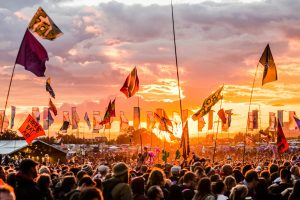
Innovation is a driving force behind the evolution of music festivals. As new technologies and ideas emerge, festivals are finding creative ways to enhance their offerings.
1. Advanced Sound and Lighting Technology
Sound and lighting technology play a crucial role in creating an unforgettable experience at music festivals. The future will see even more advanced innovations in this area, such as:
- 3D Sound Systems: Offering a more immersive experience, 3D sound systems will allow attendees to feel as though they are surrounded by the music.
- Holograms: Live performances could soon feature holographic displays of artists or visual elements that create an immersive, futuristic atmosphere.
- Interactive Light Shows: Technology will continue to push the boundaries of lighting, allowing for more dynamic, interactive light shows that respond to music and audience movement.
2. Smart Wearables and Customization
As wearable technology becomes more advanced, we may see more festivals incorporating smart wearables to enhance the attendee experience.
- Smart Wristbands: These bands could provide personalized experiences, such as tracking your location, offering exclusive content, or facilitating contactless payments.
- Customizable Experiences: Wearable technology may also allow attendees to customize their festival experience, from adjusting sound levels to creating a personalized playlist.
These innovations aim to make the festival experience more immersive, personalized, and engaging.
3. AI and Data Analytics
Artificial intelligence (AI) and data analytics are beginning to influence the way festivals are organized and experienced.
- Predictive Analytics: AI can help predict crowd behavior, ensuring better management of attendees and reducing wait times at food stands or bathrooms.
- Personalized Recommendations: Data from attendees’ preferences and behaviors can be used to suggest artists or performances they might like, making the experience more tailored.
AI and data analytics promise to streamline operations and offer a more seamless, customized experience for festival-goers.
The Popularity of Music Festivals
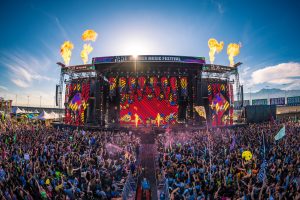
Music festivals have become an essential part of entertainment in many people’s lives. They attract thousands of fans who come to see their favorite artists perform, and they are often seen as a celebration of music and culture. The rise of social media platforms like Instagram, Facebook, and TikTok has helped spread the word about festivals, making them even more popular. Fans can share their experiences, show off festival outfits, and highlight performances in real time, drawing in even more attendees. The combination of live music, social connection, and exciting atmosphere makes festivals a must-attend event for many.
Challenges and Future Considerations

While the future of music festivals is filled with exciting opportunities, there are challenges that need to be addressed.
1. Security and Safety
As festivals become larger and more complex, maintaining security and safety will continue to be a priority.
- Crowd Control: With the growth of hybrid events, ensuring the safety of both physical and virtual attendees will be critical.
- Health and Safety: Post-pandemic, festivals will need to remain vigilant about public health and safety, implementing measures to ensure the well-being of attendees.
2. Rising Costs
As technology and sustainability practices become more expensive, festivals may face rising costs, which could impact ticket prices and accessibility. Finding ways to balance innovation with affordability will be key to the sustainability of the industry.
The Future of Music Festivals
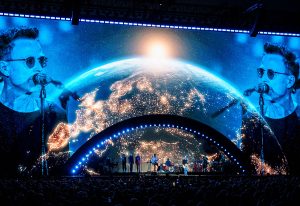
The future of music festivals looks promising, with new technologies and trends paving the way for exciting changes. Virtual and hybrid events, where both in-person and online experiences are available, are likely to grow in popularity. This allows fans from around the world to join in the excitement without traveling. Sustainability will continue to be a key focus, with festivals implementing eco-friendly practices to reduce waste and use renewable energy. The use of virtual reality and augmented reality will enhance the festival experience, creating more interactive and immersive environments. As the world becomes more connected, music festivals will continue to evolve, offering fans innovative ways to enjoy live music and cultural events.
Analysis Table: Future Trends in Music Festivals
| Trend | Description | Impact |
|---|---|---|
| Technology Integration | Virtual festivals, AR/VR, cashless payments | Increased accessibility, convenience |
| Sustainability Practices | Zero waste, renewable energy, eco-friendly merchandise | Reduces environmental impact |
| Hybrid Events | Combination of in-person and virtual experiences | Expands audience reach and inclusivity |
| Inclusivity & Diversity | Diverse music genres and global representation | Broader audience appeal, cultural enrichment |
| Wellness Focus | Yoga, mindfulness, wellness zones | Balances intense festival experience |
Comparative Table: Traditional vs. Future Music Festivals
| Aspect | Traditional Festivals | Future Festivals |
|---|---|---|
| Technology | Limited to sound and light systems | AR/VR experiences, live streaming, cashless payments |
| Audience Experience | Primarily in-person, limited access for global audiences | Hybrid events, global streaming, personalized experiences |
| Sustainability | Minimal focus on eco-friendly practices | Eco-friendly merchandise, zero waste policies |
| Inclusivity | Limited diversity in line-ups | Diverse genres, global artists, inclusive |
Conclusion
The future of music festivals is a thrilling mix of technological innovation, sustainability, inclusivity, and personalized experiences. As music festivals evolve, they are becoming more immersive, diverse, and accessible, offering new ways for fans to engage with music and culture. Whether through virtual reality, hybrid events, or eco-friendly practices, the future of music festivals looks bright and full of exciting possibilities.

